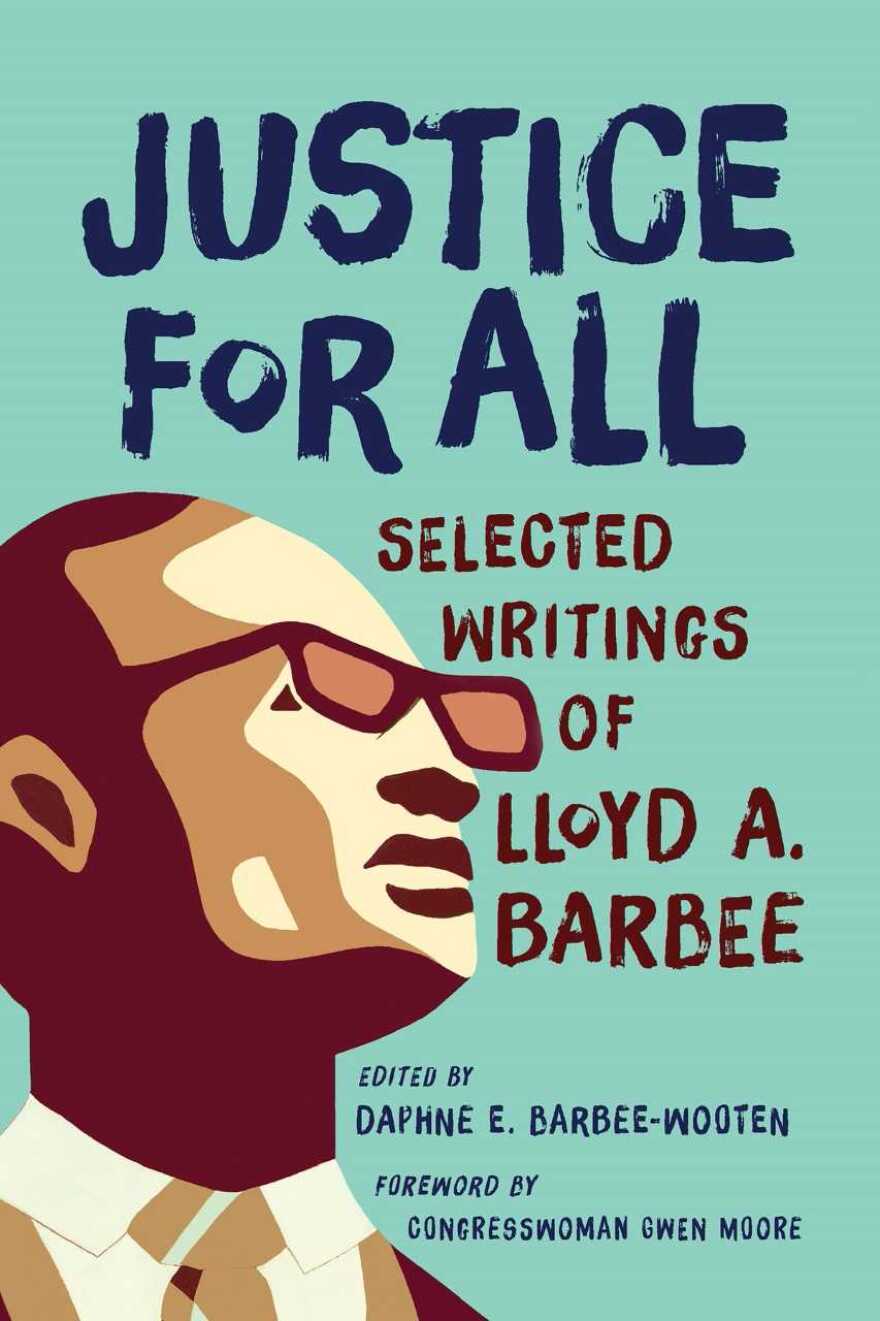The late Lloyd Barbee is perhaps best known as the lawyer and state legislator who fought to desegregate Milwaukee’s public schools. A new book lays out just how broad Barbee’s fight for justice was.

Beyond education, Barbee pushed for open housing, women’s rights, and decolonization. He would often sign his letters with the quote - “Justice For All.” And that’s the title of the new book, Justice for All: Selected Writings of Lloyd A. Barbee.
The book is edited by his daughter -- another civil rights attorney -- Daphne Barbee-Wooten.
Barbee-Wooten said that when it came to the rights of African Americans, her father saw parallels between Wisconsin and the south:
“He came from Memphis, Tennessee, which was segregated. So he came from the segregated south and then he moved up north and went to the University of Wisconsin Law School. And he found that there was discrimination in the north. And so he saw that there wasn’t much difference, and he decided to make a change.”
During the fight to desegregate schools, many black people boycotted public schools and formed independent Freedom Schools. And Barbee, a man his daughter describes as soft-spoken and demure, could be found on the front lines of direct action.
“A lot of protesters, including my father chained themselves to the school buses. A lot of them were arrested, including my father. But because he was a state representative he had legislative immunity. And he represented a lot of the people who were arrested.”
Barbee’s interests were wide-ranging. He supported Northern Ireland’s quest to push British troops out of the territory. When she was a child, Daphne Barbee-Wooten got to go with her father to Dublin, as he gave a speech on the US Civil Rights protests.
Barbee was also critical of the US involvement in Vietnam and European rule over Africa.
“There’s an international side that not that many people really knew about… He wrote about China, he wrote about Africa and getting colonists out of Africa. He wrote about South Africa, which at that time was under the apartheid system... So he did introduce to the community here in Wisconsin to an international flair - that we should look not just in our own backyard, in our own home, but look at the world and see what’s going on with the world, and see what we can do to make it a better place and to get rid of oppression.”

Do you have a question about race in Milwaukee? Submit it below.
_
Support for Race & Ethnicity reporting is provided by the Ramiah Family Foundation.



